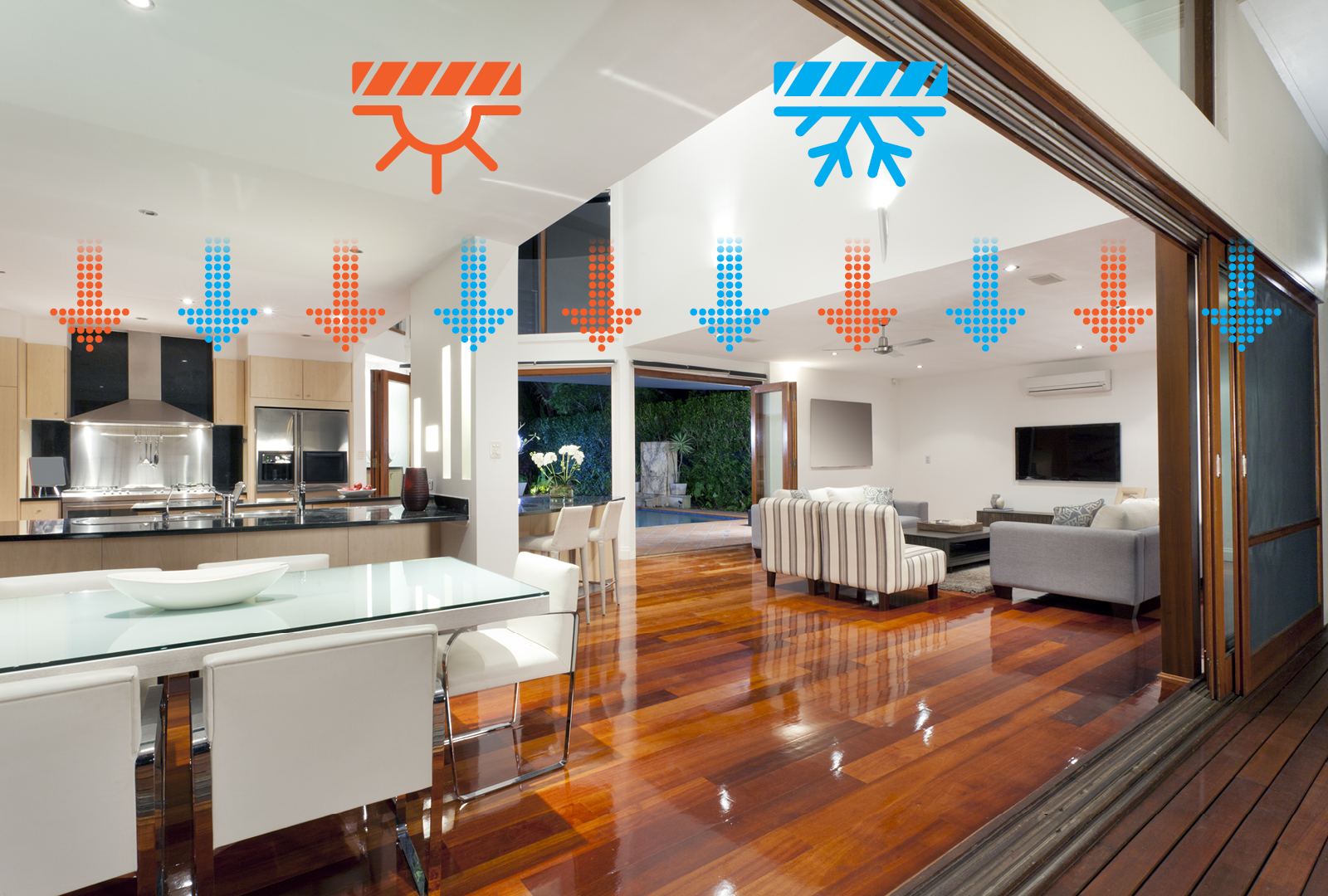AIR-TO-AIR HEAT PUMPS VS ACTIVE CEILING
Air-to-air Heat Pumps
Air-to-air heat pumps work by drawing air from the outside environment into the unit’s internal compressor. They do not create heat, but simply transfer free heat (not air) from one place to another.
Like all appliances, there are advantages and disadvantages for air-to-air heat pumps. While they may be able to quickly heat a room, they can be noisy and circulate air and dust throughout the home which may cause irritiation for allergy sufferers.
Active Ceiling
There are a variety of reasons to go with a radiant system over a traditional forced air system (such as a heat pump).
Radiant systems provide optimal thermal comfort and thermal well-being, while allowing for multiple zoning, reduced noise and are much more aesthetically pleasing. The movement of dust is also greatly reduced, which is a certain bonus for allergy sufferers.
A radiant system is typically also around 30% more efficient to run than a traditional forced air system. The individual overall system design and energy source will ultimately determine the efficiency, but keep in mind it is more efficient to move water through a home than it is to move air.
In summary;
- Silent
- No air movement
- No dust circulation









